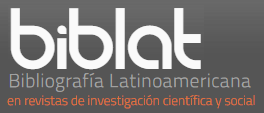Genetic polymorphisms associated with lipid metabolism involved in the pathophysiology of ischemic stroke
DOI:
https://doi.org/10.5433/1679-0367.2014v35n2p163Keywords:
Stroke, Genetic polymorphism, Dyslipidemia, Low density lipoprotein receptorAbstract
The stroke is a complex, multifactorial, and polygenic disorder that results from the interaction between the individual genetic components and environmental factors. Previous studies have established hypertension, smoking, diabetes mellitus, dyslipidemia, elevated body mass index, disturbances of coagulation and increasing age as predictors of stroke risk factors. The stroke is a more crippling than deadly disease that requires long-term institutionalization, as it decreases the quality of life of patients, resulting in higher costs to social and economic levels. It thus becomes increasingly important to emphasize the Preventive Medicine strategies. Dyslipidemia has been associated with pathophysiology of ischemic stroke and genetic polymorphisms that occur in the metabolic pathway, such as lipids metabolism, has been one of the hereditary factors related to ischemic stroke. The identification of the genetic component in the cause of dyslipidemia has been intensively investigated in recent years. Among the several genetic polymorphisms, the gene of the low-density lipoprotein receptor has been the object of many studies in the population worldwide. Data on lipid profile and study of polymorphisms of genes encoding structural proteins and enzymes related to lipid metabolism may reveal the prevalence of dyslipidemia in a population, enabling a targeted intervention for the control and prevention of atherosclerotic diseases such as ischemic stroke.Downloads
Downloads
Published
How to Cite
Issue
Section
License
Copyright (c) 2015 Semina: Ciências Biológicas e da Saúde

This work is licensed under a Creative Commons Attribution-NonCommercial 4.0 International License.
adopts the CC-BY-NC license for its publications, the copyright being held by the author, in cases of republication we recommend that authors indicate first publication in this journal.
This license allows you to copy and redistribute the material in any medium or format, remix, transform and develop the material, as long as it is not for commercial purposes. And due credit must be given to the creator.
The opinions expressed by the authors of the articles are their sole responsibility.
The magazine reserves the right to make normative, orthographic and grammatical changes to the originals in order to maintain the cultured standard of the language and the credibility of the vehicle. However, it will respect the writing style of the authors. Changes, corrections or suggestions of a conceptual nature will be sent to the authors when necessary.
This Journal is licensed with a license Creative Commons Assignment-NonCommercial 4.0 International.

















